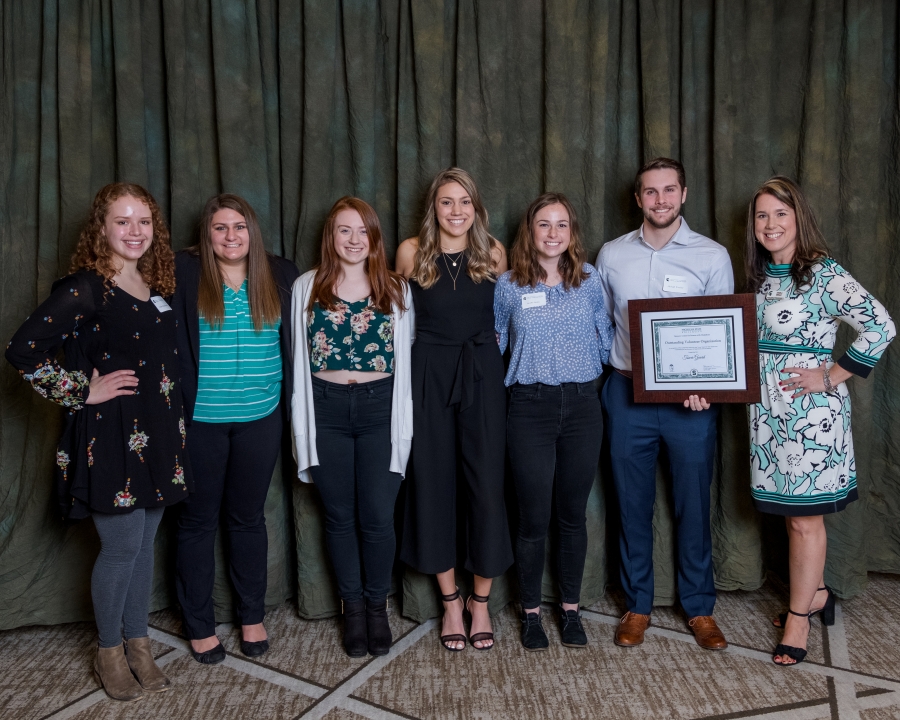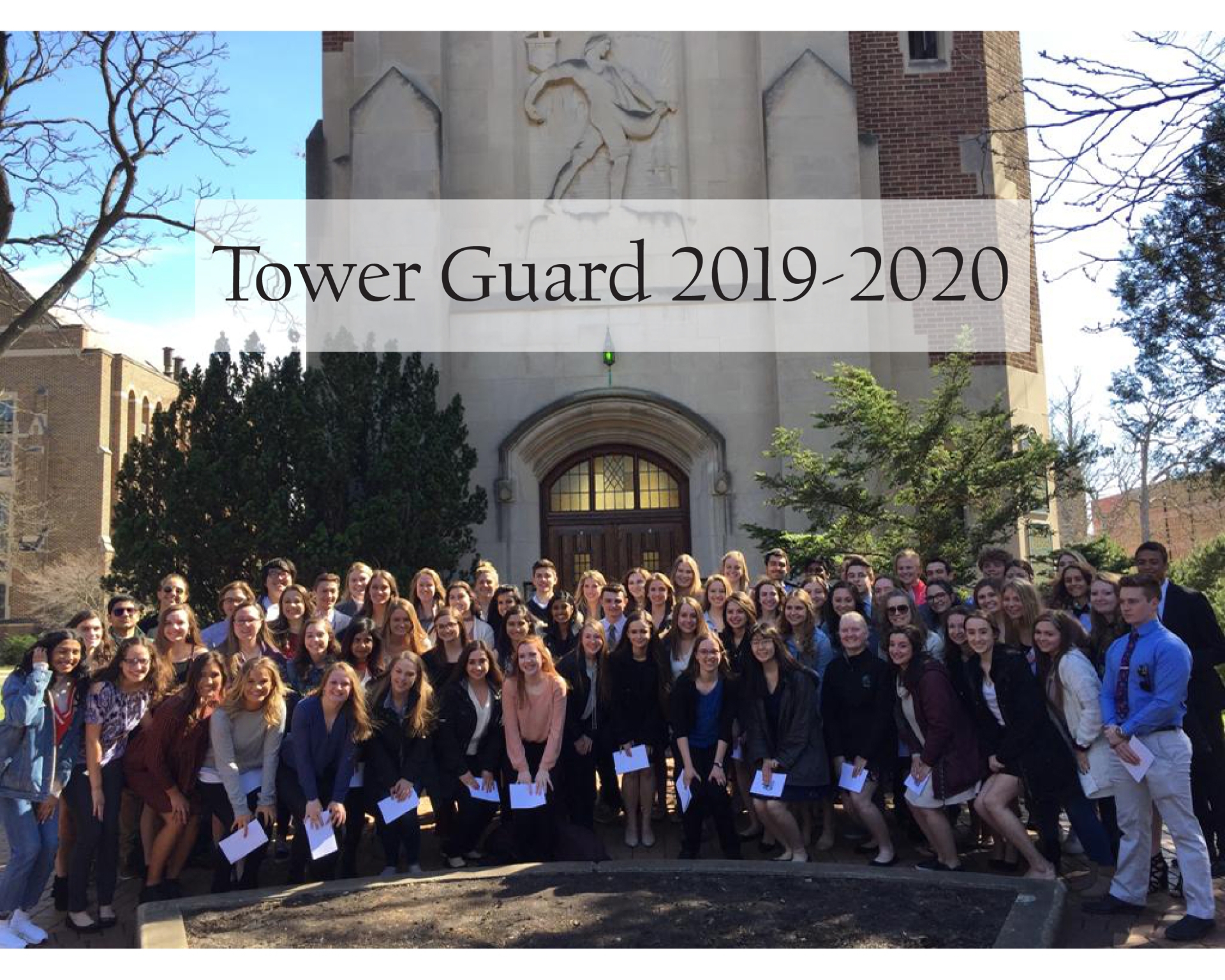On a crisp spring morning toward the end of April, a large group gathers outside Beaumont Tower well before the dawn. They clasp hot cocoa in their hands and stomp their feet against the lingering winter chill, waiting together for the new year’s Tower Guard members to arrive. The event is called May’s Morning Sing, and it is tradition that everyone BUT the newly about-to-be-inducted members know what is happening. They know they had been invited to join Tower Guard, they know they had applied and been interviewed, but until this moment they did not know they had been accepted. Their family and friends were told the happy news in advance and were charged with a task of utmost secrecy: trick your student into coming with you in the early morning hours and then bring them to Beaumont Tower for a sunrise surprise. In years gone by this has been achieved by means as simple as inviting your son out to breakfast, or as elaborate as abducting your roommate and rolling them across campus in a laundry bin! No matter how they arrive to Beaumont Tower, the looks of disbelief on their faces, giving way to delight when they realize what is happening, are all the same. From the top of the freshman class, they were chosen and responded to the call, and will spend their sophomore year in service.
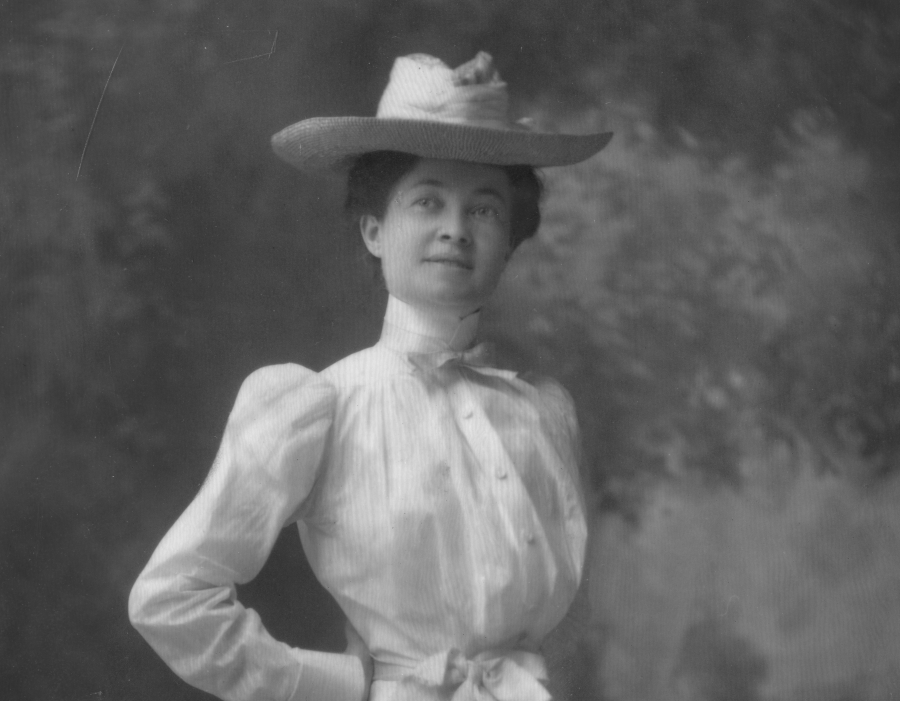
Tower Guard was founded in 1934 by May Shaw, the wife of former MSU president Robert Shaw. At the time, it was an all-female honor society known as the “Q Girls,” and their purpose was to serve the needs of students with visual impairments at MSU. Starting in 1977, membership expanded to include men and for every school year since then, approximately 80 sophomores have served in Tower Guard (so named because they are the only student organization holding keys to Beaumont Tower), each contributing 120 service hours per year. Their responsibilities are many and varied, but always their purpose is clear: to provide partnership empowering persons with disabilities.
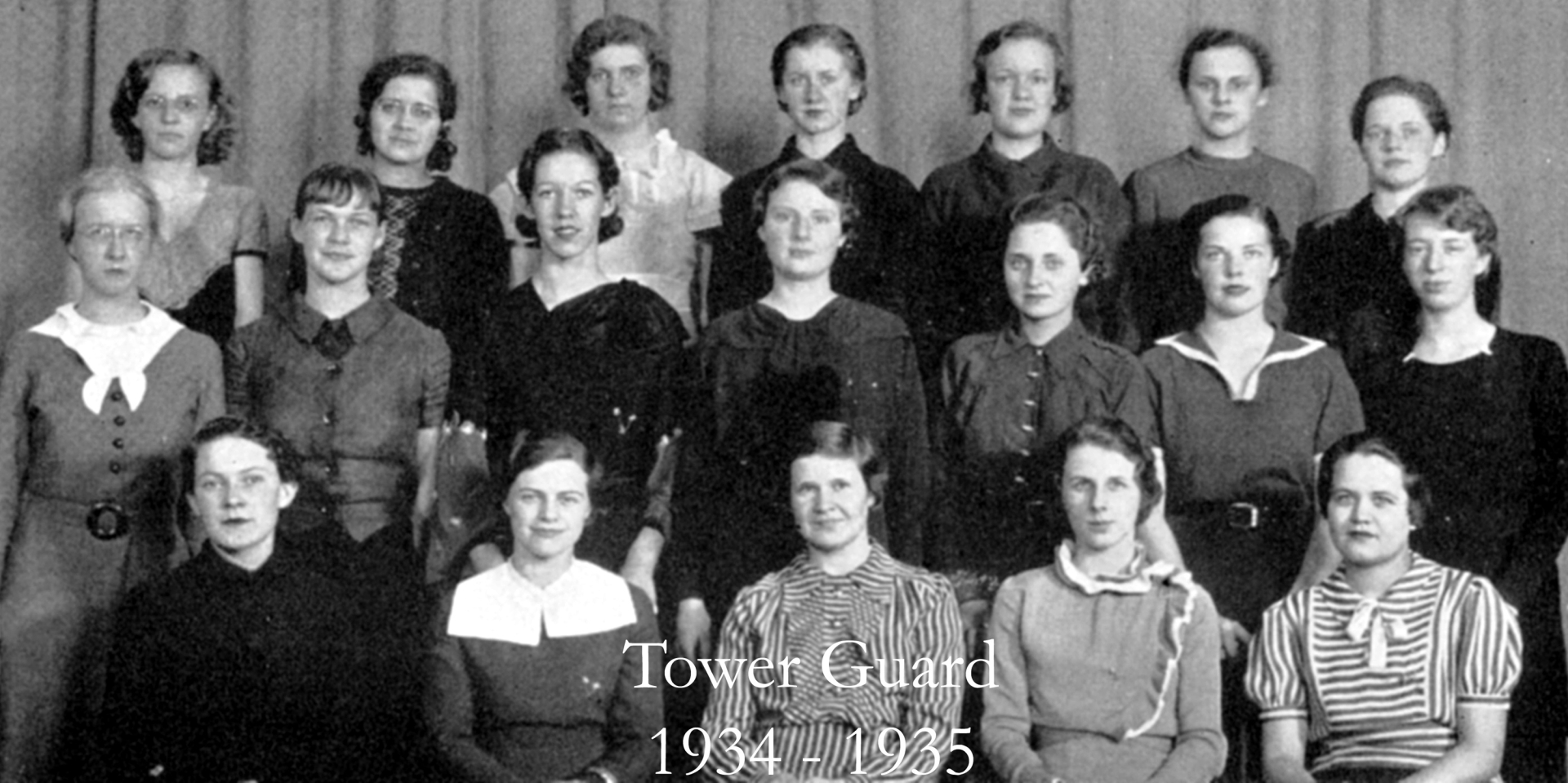
Achieving this goal comes in many forms. Tower Guard members work closely with the RCPD and are credited with facilitating over 85% of the reading-related services provided by the office. They routinely volunteer to read/scribe exams for RCPD students, which means that they accompany the student into the testing room and read out the questions and/or write down answers as dictated by the student. In addition, they work tirelessly all throughout the year on e-texting, which is the process of transforming a written book into a digital version that is accessible and can be read by screen reader software. Tower Guard volunteers also assist with one-on-one tutoring in a variety of subjects, as well as helping students with visual impairments learn to navigate campus.
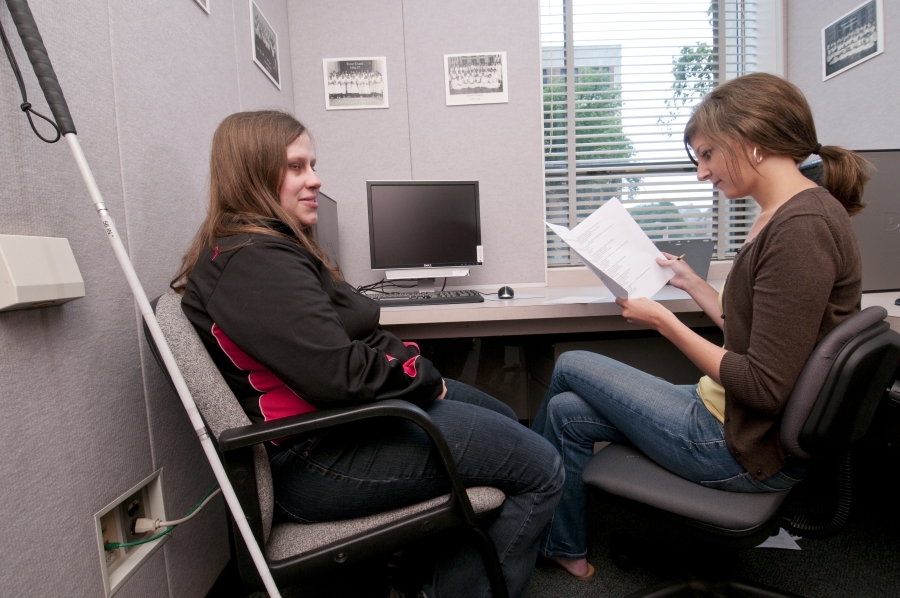
Beyond the day-to-day assistance Tower Guard members provide to individual students, they also raise money and awareness for persons with disabilities throughout campus and the greater community. In the fall they work together to create a float for the homecoming parade, which is a chance to use their creativity to showcase what they think Tower Guard is all about. Every year in March, they coordinate their flagship event: The Shamrock 5K Run-Walk-Roll, a fully accessible event which has been running since 2000, with funds going toward the RCPD. The 5K committee works hard to organize a fun filled affair for people of all ages and abilities, with music, food, drinks, and prizes donated by local businesses. Sometimes even Sparty himself makes an appearance!
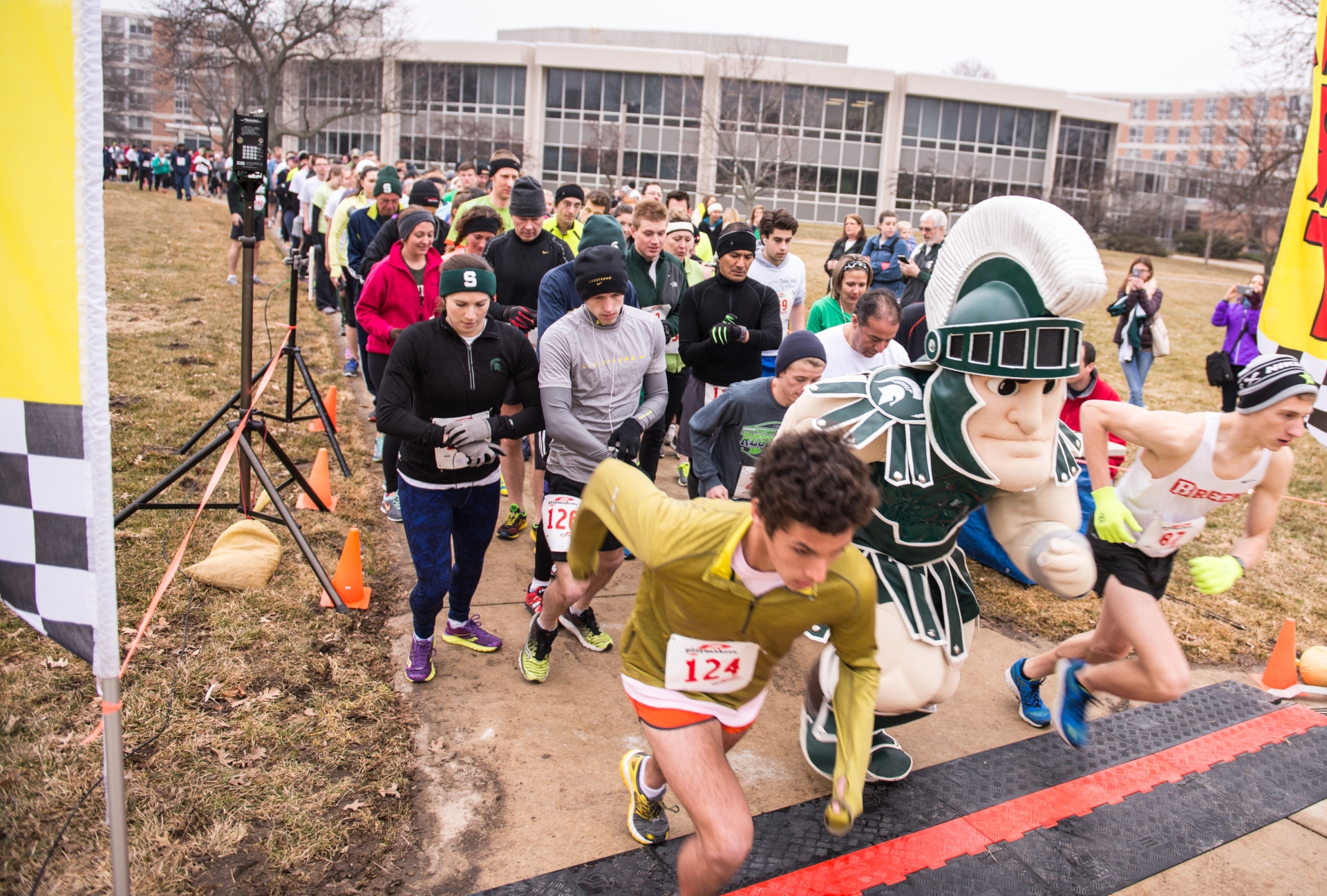
Tower Guard also assists with RCPD-led programs (such as Alex’s Great State Race, BOND, CSD, and WOW) by offering their time and skills, be it fundraisers leading up to an event or helping out at an after-hours workshop. Tower Guard has been recognized multiple times by the RCPD at its annual Awards and Appreciation Reception as recipients of the Outstanding Volunteer Organization Award.
The bright young men and women of Tower Guard inherit a legacy of service that leaves a lasting mark on them, and they in turn leave their own mark on the university, on each other, and most importantly on the students with disabilities whom they serve.
